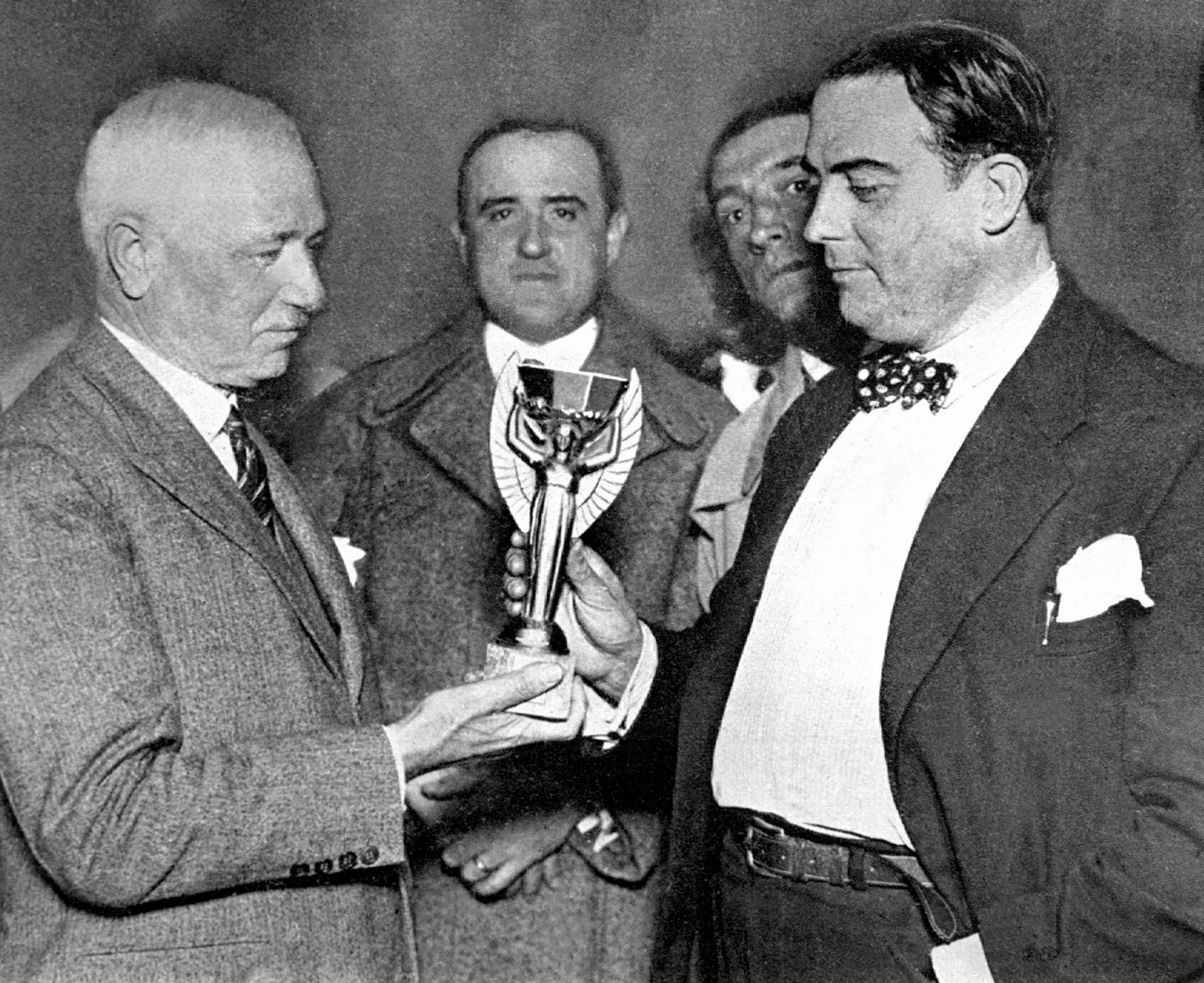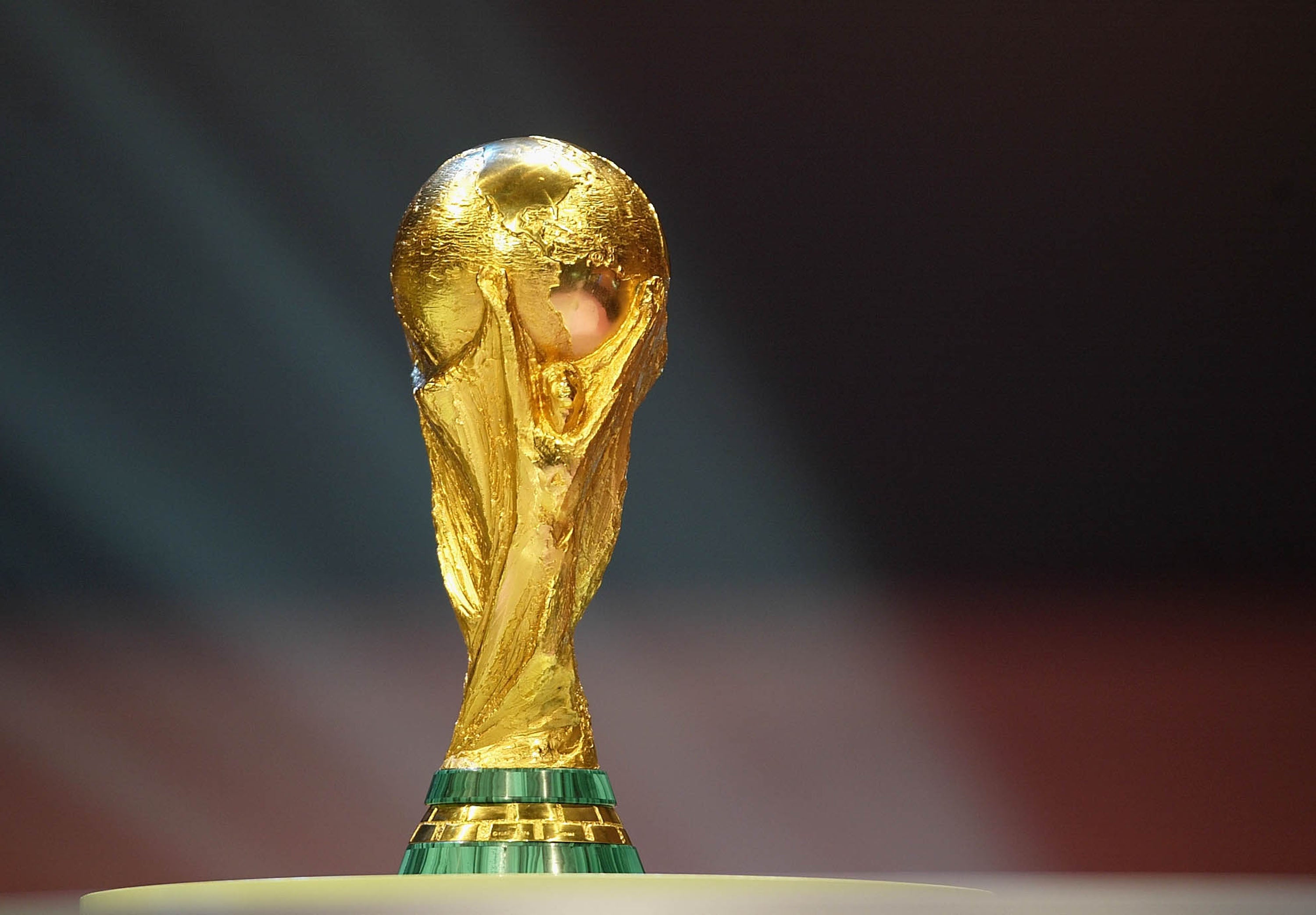Why the Qatar World Cup is a betrayal of everything Jules Rimet stood for
The World Cup’s founding father stood up for the working class and saw football as a place for equality to thrive

Your support helps us to tell the story
From reproductive rights to climate change to Big Tech, The Independent is on the ground when the story is developing. Whether it's investigating the financials of Elon Musk's pro-Trump PAC or producing our latest documentary, 'The A Word', which shines a light on the American women fighting for reproductive rights, we know how important it is to parse out the facts from the messaging.
At such a critical moment in US history, we need reporters on the ground. Your donation allows us to keep sending journalists to speak to both sides of the story.
The Independent is trusted by Americans across the entire political spectrum. And unlike many other quality news outlets, we choose not to lock Americans out of our reporting and analysis with paywalls. We believe quality journalism should be available to everyone, paid for by those who can afford it.
Your support makes all the difference.A century has passed since the World Cup’s founding father, Jules Rimet, assumed Fifa’s presidency and began setting the wheels in motion for the first tournament in 1930. Even a visionary like Rimet would have struggled to imagine the immense success and global pull that the tournament would command a hundred years later, but it is not hard to guess what he would have thought about the 22nd World Cup in Qatar.
Rimet came from humble beginnings as the son of a grocer in a tiny village in eastern France, and he climbed the class ladder by winning a scholarship to law school. His beliefs were simple: that football should be global and inclusive, fair and respectful. In a small Parisian cafe, he co-founded a sports club called Red Star based on those principles of cooperation and equality. Red Star were rare in that they did not discriminate based on social status and included working-class players, and their football team still cherishes those roots closely today.
As a devout Catholic, Rimet was inspired by Pope Leo XIII’s Rerum Novarum, a letter issued in the aftermath of the industrial revolution, which set out the principles of basic workers’ rights. It was in part a doctrine against exploitation and one that resonates as strongly with 1920s France as it does the 2022 World Cup; what is exploitation if not the transformation of workers’ sweat and blood into someone else’s wealth or power? The World Cup’s origins started from a man who fought against class structure, and a century later the tournament kicks off in one of the most structured, racially divided class systems in the world, where many thousands of south Asian labourers are at the bottom of a brutally unequal society run by a few unfathomably rich sheikhs.
You will have heard many of the allegations against Qatar 2022 by now: a brazen act of sportswashing by a young authoritarian nation trying to make waves on the global stage; a bid won by corruption, according to an investigation by the US Department of Justice (something Fifa and Qatari officials deny); miserable worker conditions not rectified; thousands of workers’ deaths unexplained; the oppressive Kafala system, introduced under British colonial rule and finally abolished in 2020, strangling workers’ rights; a country where women’s freedoms are dictated by male guardianship and homosexuality between men remains illegal. Then there is the startling lack of urgency with which Qatar has investigated the many problems raised by human rights groups over the decade or so since it embarked on the vast construction project required to host the World Cup.
Fifa’s argument that Qatar’s migrant workers might now stride out into new sunlit uplands is a fantasy. The small progress made thus far in Qatar, like the abolition of Kafala, came too late for those migrant workers who had already been exploited, and reportedly its deplorable practices remain. Notably, after the 2010 World Cup in South Africa and Brazil 2014 there was evidence of gradual improvement for workers’ rights in the construction industry, following protests in both countries. Yet in August, 60 migrant workers who protested over unpaid wages were arrested by Qatari authorities and in some cases deported, supposedly for “breaching public safety laws”; therein lies the difference between democracy and dictatorship.

Rimet watched his brainchild be abused by dictatorship first-hand. The 1934 World Cup was awarded to Benito Mussolini’s Italy at a time of global financial crisis when there were few countries willing and able to be hosts. The Italian government assured Fifa it would underwrite any financial losses, and this proved a persuasive argument.
Mussolini used the World Cup skilfully both as a projection of power abroad and a vehicle of propaganda at home. Posters and specially commissioned stamps flooded Italy in the build-up, and Mussolini personally drummed up enthusiasm by purchasing a ticket for the opening match – that classic populist trick of presenting himself as a man of the people. He commissioned a radio documentary that heralded 16th century Italy as the true birthplace of the game so that when the Italian team lifted the World Cup in Rome, a nation rejoiced in football coming home.
Fifa was criticised for giving fascism such a platform, and President Rimet later regretted what became an exercise of nationalist chest-beating, saying: “I have the impression it was not really Fifa who organised this World Cup, but Mussolini.” The tournament is said to have cost Rimet the Nobel Peace Prize when he was nominated in 1956.
Rimet had mistakenly believed sport could transcend politics – his grandson, Yves Rimet, described him as an “idealist” – but 1934 showed that one could be weaponised by the other, especially on a global stage. Trying to unify the world around sport in a pre-globalised age brought many challenges, and those early tournaments were all flawed in their own way, but perhaps this is the point: that in the 21st century the World Cup can still be exploited for political gain and can fail to meet basic expectations of humanity.
So here we are on the eve of a tournament to be played out in glistening stadiums, mausoleums in the desert, ready to be dismantled once everyone’s gone home. On the surface will be a shiny football World Cup; look, there goes Kylian Mbappe, Lionel Messi, Cristiano Ronaldo, playing football in Qatar. But we should not forget the values of Jules Rimet, whose name bestows the trophy that famous footballers will lift in Doha on 18 December. Égalité, this is not. As the tournament blooms in the winter sun, know it was sown in dirty soil and grown by bloodied hands.
Join our commenting forum
Join thought-provoking conversations, follow other Independent readers and see their replies
Comments